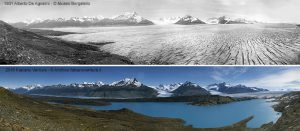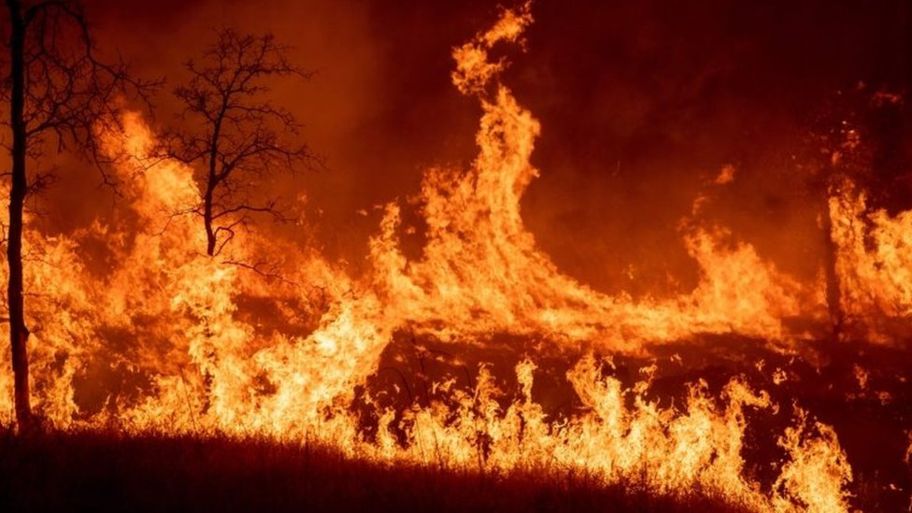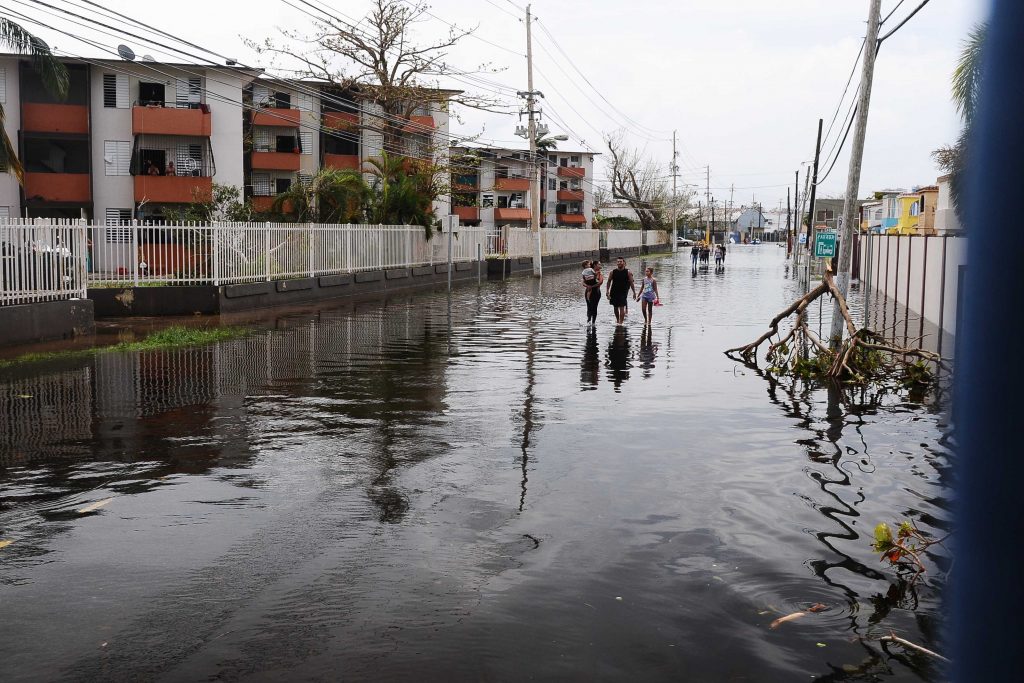
A Guest Essay by Dr. Jonathan Levy, Chair of Environmental Health, Boston University School of Public Health, who also happens to be my son.
This Earth Day, let’s keep in mind that our actions today can improve our health and well-being tomorrow, provide a brighter future for the next generation, and have beneficial consequences many generations from now that could never be foreseen today.
I’ve been thinking a lot over the past few days about the fire that gutted Notre Dame Cathedral. Like so many others, I was transfixed watching the news, having a difficult time fathoming that something so permanent and iconic could be so quickly damaged and nearly destroyed. There are certain things that seem like they could never disappear, until, of course, they do.
A few commentators have made the obvious parallel with climate change, which is front and center in the news with Earth Day coming up next week. After all, once the Great Barrier Reef is gone, it isn’t coming back. Once Glacier National Park lacks glaciers, it will lose something that cannot be replaced. Just as it is sad to think that I can never show my children Notre Dame as I experienced it, it is sad to think that they will never see some marvels of the natural world that I took for granted.
But, as an environmental health researcher and educator, I can’t help but draw another parallel between the Notre Dame Cathedral fire and how we think about the environment. The renovations being done at Notre Dame Cathedral (the presumptive cause of the fire) were needed for a number of reasons, but principal among them was the damage to the edifice from centuries of air pollution. I would guess that, if you asked Parisians 100 years ago if they would pay more for cleaner fuel to avoid Notre Dame being destroyed in the twenty-first century, they would have laughed and considered it a far-fetched notion. But it would have certainly been much cheaper than rebuilding Notre Dame today, and far less damaging to the psyche of a nation.
At its heart, this is a question of prevention, which is the foundation of environmental health and public health. But sadly, we have not used a prevention mindset and have avoided taking the necessary steps to date to confront the challenge of climate change. When we ask the question of whether we are willing to invest money today to solve future climate challenges, many people balk and consider the impacts too distant to worry about. We have regularly deferred action and focused on near-term finances rather than long-term consequences. And those consequences are now right in front of us. An article published last summer explained that feedback systems on Earth mean that we could reach a point where it would be too late to prevent a “hothouse Earth” in which large portions of our planet would be essentially uninhabitable by humans. The authors argued that even if we were able to meet the Paris Accord target of a 1.5 to 2.0 degree Celsius increase in global temperatures (an outcome very much in doubt), it is still possible that we would reach this tipping point within decades. Scientists can debate about whether the chance of catastrophic and irreversible outcomes is high, medium, or low. But it’s clearly not zero.
That said, it is difficult to convince people to act to address distant problems, since it is human nature to focus on issues in the here and now. Coming back to Paris, the long-term possibility of catastrophic damage to Notre Dame Cathedral may not have persuaded people to act on air pollution. But the same air pollution that damaged Notre Dame Cathedral also contributed to premature deaths, asthma, and heart attacks in Paris. Perhaps knowledge about the near-term health effects of air pollution would have spurred action, without people even thinking about the long term.
And when it comes to climate change, this is not an issue far off in the future. The impacts are being felt today. This past summer, we witnessed historic fires in California, unbearable heat waves in Canada, Japan and Europe, and extreme drought conditions throughout the western United States. We have seen cataclysmic hurricanes that have devastated Puerto Rico and Houston in recent years, with damages in the hundreds of billions of dollars and thousands of lives lost. Climate change impacts are immediate, real, and damaging. All indications are that they will continue to worsen. We can recognize this reality and invest now in measures to protect us from climate change, or we can pay the increasingly costly price later.
Fortunately, there are strategies and solutions that can address climate change while saving money and improving the health and well-being of communities. Solar panels can lead to reduced electricity bills for homeowners. Green space can reduce urban heat islands and provide spaces for exercising and connecting with neighbors. Energy efficient “green” buildings can lead to improved productivity and health for workers. We can invest in sustainable and livable communities, and in parallel, construct the infrastructure necessary to guard against the climate changes that are already occurring.
This Earth Day, let’s keep in mind that our actions today can improve our health and well-being tomorrow, provide a brighter future for the next generation, and have beneficial consequences many generations from now that could never be foreseen today. After all, the easiest fire to put out is the one that never starts.
Laurie invites you to read her book Terribly Strange and Wonderfully Real and join her Facebook community.
Boomer. Educator. Advocate. Eclectic topics: grandkids, special needs, values, aging, loss, & whatever. Author: Terribly Strange and Wonderfully Real.






Thank you for your guest author, Laurie. How appropriate and timely! I think if you read my essay, you will see that your son and I are on the same page, though I didn’t back up mine with as much data, just more anecdotal references. Good work!
We are definitely on the same page, maybe even more than we knew. My son lives in Newton! I turned to him because I was struggling to put all of my concerns on paper. Sad.
What a great essay your son has written, Laurie! You must be very proud of him. I love that his last paragraph strikes an optimistic note, it isn’t all gloom and doom. And the final sentence is perfect! Thank you so much for sharing it with the Retrospect community.
I am very proud of him and the work he does trying to make the environment cleaner and safer for his children and future generations of children.
Thanks for featuring your son’s essay, Laurie, loved it. Let’s hope we don’t have to say “requiem in pace” to too many features of our natural world and can take action to preserve what we still can.
Amen, Marian. The future of our environment is so important and yet often ignored.
I would lose all hope for our species if it wasn’t for the clarity, determination and fortitude of the upcoming leaders/writers. By calling out our missteps and at the same time offering the hope of practical solutions, we may still yet save our beautiful home! Thanks for this!
It gives me some hope that my son’s generation is determined to do better for the future of our planet. It’s his life’s work and I’m really proud of him.
This is an essay that needs to be read broadly. Thanks so much for sharing!
I think Jon really nailed it. I will let him know you appreciated his work.
If only those in government had an iota of his brilliance.
Amen!
Wonderful addition to the topic, Laurie! A thoughtful, well-presented piece from a guest writer. Tks!
Thanks, Charles. My son’s generation will have to fix this mess, but I have hope that it will.
A very wise essay, Laurie. Kudos to Jonathan—and to you and your husband for helping to instill his capacity for wisdom and reason.
I used to think winning the battle over climate change was a matter of effective persuasion, but now that a majority of Americans believe in it, I think it comes down to politicians currently in power (and their base) digging in their heels. I’m hopeful that, once they are ousted and more forward-thinking leaders take over, the debate will be over and most people won’t believe we ever fought so fiercely about it—much like gay marriage or (soon to come) cannabis. Or am I dreaming?
Thanks, John. We are very proud of his work. I agree that it will take a new generation of leadership. Other examples of things that simply changed: seatbelts and smoking in public places. It’s hard to imagine there was a time when these weren’t part of our lives, but I remember it well.